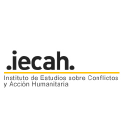WORKING WITH DG ECHO AS A UN AGENCY | 2014 - 2020
PROCUREMENT IN HUMANITARIAN AID
Procurement in humanitarian aid is strongly influenced by its nature, its objectives and the context in which humanitarian actions are implemented, including their rather short implementation period and the need to guarantee in all cases the quality assurance of specific supplies.
According to the Article 1.4 of the Delegation Agreement, when procuring Humanitarian Aid, the UN Agency may be asked to apply:
-
Commission rules for procurement or,
-
Its own procurement procedures, as assessed by the Commission in the 7 pillars review assessment
In any case, UN Agencies retain the sole responsibility for compliance with these procurement provisions and shall ensure that implementing partners comply with them as well.
The Commission may accept that procurement rules and procedures of the UN Agency are equivalent to its own if the following conditions are met:
a) they comply with the principle of broad competition of tenderers to obtain the best value for money, and negotiated procedures are limited to reasonable amounts or are duly justified;
b) they ensure transparency with adequate ex ante publication, in particular of calls for tenders, and adequate ex post publication of contractors;
c) they ensure equal treatment, proportionality and non-discrimination;
d) they prevent conflicts of interests throughout the entire procurement procedure.
National law of Member States or third countries transposing Directive “2004/18/EC shall be considered equivalent to the rules applied by the institutions in accordance with the Financial Regulation.
Furthermore the UN Agency shall adopt reasonable measures to ensure to exclude form the participation those potential candidates who are:
-
bankrupt or being wound up, are having their affairs administered by the courts, have entered into an arrangement with creditors, have suspended business activities, are the subject of proceedings concerning those matters, or are in any analogous situation arising from a similar procedure provided for in national legislation or regulations;
-
persons having powers of representation, decision making or control over them have been convicted of an offence concerning their professional conduct by a judgement of a competent authority which has the force of res judicata;
-
persons having powers of representation, decision making or control over them have been the subject of a judgement which has the force of res judicata for fraud, corruption, involvement in a criminal organisation, money laundering or any other illegal activity detrimental to the EU's financial interests;
-
guilty of misrepresentation in supplying the information required as a condition of participation in the procedure or if they fail to supply this information;
-
subject to a conflict of interests.
CENTRAL EXCLUSION DATABASE
The Central Exclusion database is a fixed template that has to be used by the partner when it finds a third party that have persons having powers of representation, decision making or control over them that have been the subject of a judgement which has the force of res judicata for fraud, corruption, involvement in a criminal organisation, money laundering or any other illegal activity detrimental to the EU's financial interests.
Together with the template, the partner should provide the Commission with a copy of the definitive judgement and, where available and applicable, of the necessary documents establishing the legal existence of the entity concerned. It shall also inform the entity concerned about the transmission of the data.
The Commission, from its side, shall introduce the information received in the Central Exclusion Database, which the partners can take into account when awarding contracts. Access to the information contained in the Database can be provided through the Unit in charge of finance, legal affairs and partner support.
In order to ensure the update of these information, the partner shall inform Commission whenever the information transmitted needs to be rectified, updated or removed.
In those cases where the partner fails to comply with these provisions, the Commission may declare the related costs ineligible for funding by the EU.
DUTIES OF INFORMATION ON PROCUREMENT
As regards the partner’s duties of information about procurement, we should differentiate among Multi-donor and fully funded Actions.
Fully funded Actions
In this case, the partner shall publish, on an annual basis, on its internet site, the following information on procurement contracts exceeding EUR 15 000:
-
title of the contract
-
nature and purpose of the contract
-
name and locality of the Contractor,
-
amount of the contract
The partner shall provide to the Commission the address of the internet website where this information can be found and shall authorise the publication of such address on the Commission’s internet site.
Multi-Donor Actions
The publication of information on procurement to Contractors shall follow the rules of the International Organisation, with due observance of the requirements of proportionality, confidentiality and security.
RIGHT OF ACCESS
The partner shall allow the Commission and the European Court of Auditors, or any other representative authorised by the Commission, to conduct desk reviews, and on-the-spot checks on the use made of the EU contribution (including procedures for the award of procurement contracts and grants) on the basis of supporting accounting documents and any other documents related to the financing of the Action.
To this end, for a period of five years starting from the End Date of the Action, the partner shall keep and make available, all relevant financial information in its original form (electronic as the case may be) or, in exceptional and duly justified cases, certified copies of original documents related to the Agreement and on any procurement contracts concluded under the Agreement.





